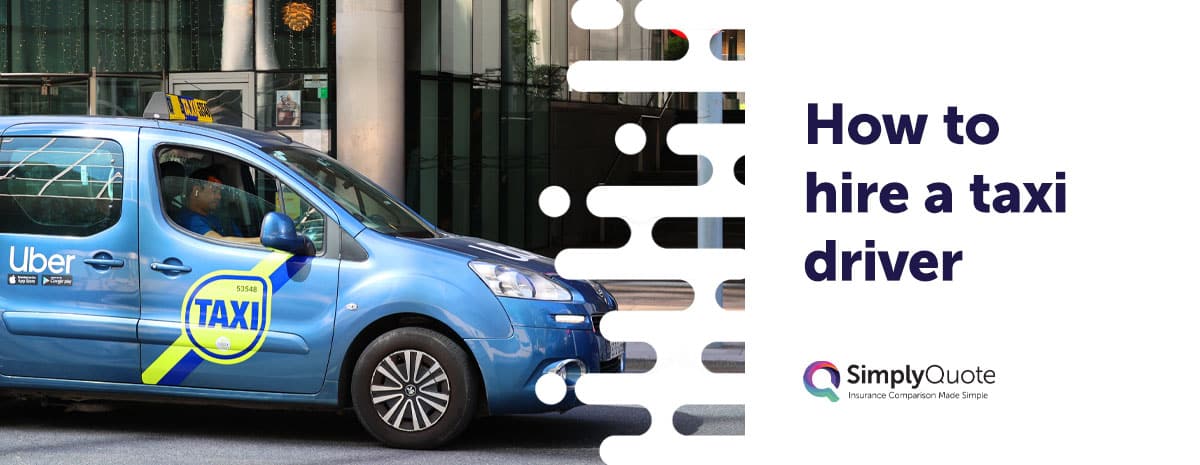How to hire a taxi driver
When hiring private hire drivers, ensure they have all the mandatory licensing and credentials, have passed assessments and checks, and have a well-maintained reliable private hire vehicle. After that, it is up to you to decide whether or not the driver meets your standards before hiring them.
The kind of driver you hire will depend largely on your business needs. Are you looking for a chauffeur, school transporter, tour guide, or taxi driver? We’ll guide you through this process.
Those with an established private hire taxi business may require more drivers to accommodate the service demands. We will discuss the logistics of hiring private hire drivers, as well as the training, assessments, licensing, and costs involved in this process.

What credentials do all taxi drivers need?
To be a licensed private hire operator in the UK, drivers must:
- Be able to legally work in the UK
- Have a valid DVLA driving licence
- Have at least three years of legal driving experience
- Be over the age of 21
This is the bare minimum required before applying for a taxi operator’s licence. Some drivers opt for formal taxi driver training, such as:
- NVQ Certificate in Road Passenger Vehicle Driving (Taxi and Private Hire) (RQF)
- Advanced driving courses
- Vehicle upkeep course
- Hazardous driving training
- Safeguarding for Taxi Drivers course
These courses are not a legal requirement, but the contractor may stipulate whether they are necessary. Private hire drivers with formal training and qualifications have better job opportunities. It’s also a great way to decrease insurance costs.
Looking for cheap taxi insurance? Get your quote today!
Get QuotesWhat is the application process for becoming a taxi driver?
Your potential taxi driver should have completed the application process for obtaining a PCO licence or private hire driver’s licence and passed all required checks.
Applicants would do this at the licensing unit of their local council or via the Transport of London (TfL) if they want to be a London taxi driver. During the application process, the following are usually done:
- Disclosure and Barring Service check in England and Wales; AccessNI in Northern Ireland; Protecting Vulnerable Groups Scheme in Scotland
- Driving skills assessment
- Medical assessment
- Knowledge test
- English language test
These checks are covered in the application fee. Taxi business owners may request documentation relating to these requirements. They may also conduct their own assessments or checks, such as an enhanced disclosure and barring service check.
Once a private hire driver has been issued with their official licence, they must take out private hire insurance. This is a legal requirement, but some drivers may be covered by their contractor’s fleet insurance.
Bonus read: How Much Does It Cost To Become A Taxi Driver?
What is fleet insurance?
Fleet insurance provides cover for multiple private hire vehicles under one policy, with one renewal date and premium. Taxi companies may cover any number of vehicles regardless of their make and model. If you own more than two vehicles, you are eligible for fleet insurance.
How to conduct a taxi driver assessment
As mentioned, private hire drivers who have obtained their licence have already passed tests and assessments. However, it is in the best interests of contractors to conduct their own assessments to determine whether or not a driver is a good fit.
Certain criteria may not be assessed in the initial application.
Anyone can hire a qualified taxi driver, but wouldn’t you rather hire someone who knows how to be a good taxi driver? These are a few qualities that make successful taxi drivers:
Taxi driver requirements checklist
- A well-maintained car for private hire use if one is not provided
- Excellent time management skills
- Good written and spoken English
- Basic numeracy skills
- Geographical knowledge
- The ability to work under pressure
- A calm demeanour
- Congenial disposition
- Clean and professional appearance
- Flexible and able to work nights and weekends
- Good interpersonal skills
Ask questions related to these points – the candidate’s answers should offer insights into how they would perform in certain situations.
How do you hire a taxi driver for your corporate business?
We’ve covered how taxi businesses hire taxi drivers, but what if you are not in the taxi industry? If your company wants to hire a private hire driver for corporate use, this is how you would do it:
- Determine your budget for a private hire driver.
- Decide whether you want to subcontract a driver through an established company or hire a self-employed driver.
- Conduct interviews.
- Request any necessary documentation or run further background checks if required.
- Draw up a contract for your driver.
- Have clear stipulations about contract length, remuneration, working hours and expectations.
| Subcontracting | Self-Employed Driver |
|---|---|
| Pros: | Pros: |
| – Backup driver available | – Lower rates |
| – Prior vetting by the taxi company | – Possibly open to negotiating terms |
| Cons: | Cons: |
| – Likely additional fees | – No backup if unavailable |
| – More expensive than hiring a self-employed driver | – Your company is responsible for managing the driver |
How much does it cost to hire a taxi driver?
A private hire driver who has been employed permanently must be paid a minimum hourly wage of £9.50. Employers are required to cover permanent staff for holiday pay, sick leave, maternity, or paternity leave.
Drivers hired on a self-employed basis can either be:
- Paid a set fee by the employer to work for their company
- Paid a commission rate of their earnings by the employer, which varies between companies
The cost of hiring a taxi driver will depend on several other factors, such as:
- The driver’s level of experience
- Whether or not a lease vehicle is required
- If a driver is hired as a permanent employee
- If a driver is hired on a self-employed basis
Any relevant application fee for obtaining a PCO licence is covered by the driver. They are also responsible for the insurance and maintenance of their private hire vehicles, although things like car services and licensing fees can be claimed as business expenses.
Bonus read: What Expenses Can A Taxi Driver Claim?
Final thoughts
Now that you know how to hire a taxi driver, you can start growing your business. Be sure to check out all the information SimplyQuote has to help guide you. Whether it’s business insurance or advice on how to get cheaper taxi insurance, we’ve got you covered.
Frequently Asked Questions
Yes, if the taxi business has opted for fleet insurance, they are liable for the cover of the cars their drivers operate. If the hired driver has their own vehicle, said driver is responsible for their own taxi insurance.
Yes, in some cases, you can. EU driver’s licence holders are permitted to work as taxi drivers in the UK and can be hired. Those with licences from other countries will rely on the decision of the licensing authority to determine whether or not they may work as taxi drivers in the UK.
These days, it is very easy for people to hire private hire drivers using apps such as Uber or Bolt. Smaller UK private hire businesses may have their own apps or operating systems that allow passengers to book online or via phone, text, or email.
